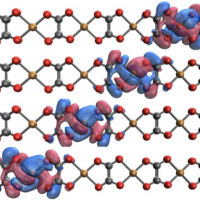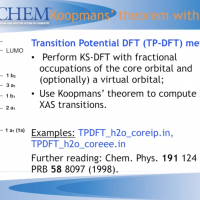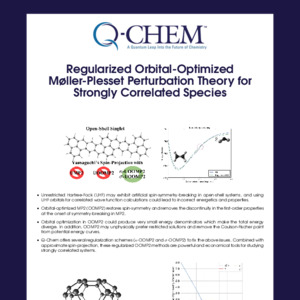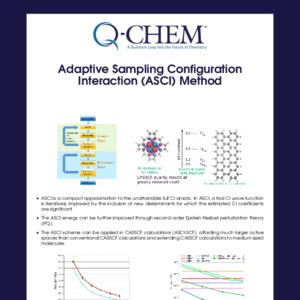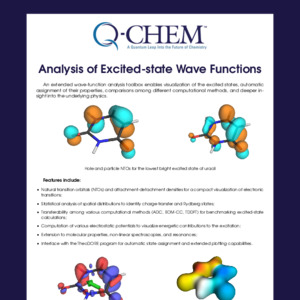Q-Chem Webinar 16
ADC in Q-Chem: A Versatile Module for Excited, Ionized and Electron-Attached States
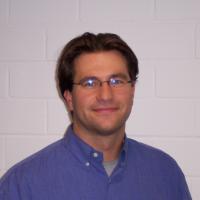
Prof. Andreas Dreuw is one of the leading experts in excited state method development and simulations. He received his Ph.D. from the University of Heidelberg in 2001. After a postdoctoral study at the University of California at Berkeley and Habilitation at the University of Frankfurt, he returned to the University of Heidelberg in 2011, where he is now the Chair of Theoretical and Computational Chemistry. He has received many honors, including the Outstanding Young German Scientist Award of the Lise Meitner-Minerva Center of Computational Quantum Chemistry and the title of Heisenberg fellow of the DFG
Abstract
ADC is a perturbation theoretical approach that allows for the direct computation of excitation energies, ionization potentials and electron affinities. In this webinar, the basic algebraic expressions of ADC will be derived and the mathematical advantages of the method will be highlighted. Main focus will be put on ADC for excited electronic states, and the second-order approaches ADC(2)-s and ADC(2)-x will be introduced, and the potential of the recently implemented third-order ADC(3) will be demonstrated. Beyond the computation of excitation energies and oscillator strengths, the ADC program gives access also to excited state properties like, state-to-state transition dipole moments, spin-orbit coupling elements and two-photon absorption. Pilot implementations of ADC for direct computation of ionization potentials and electron affinities will be introduced, and first results shown.
